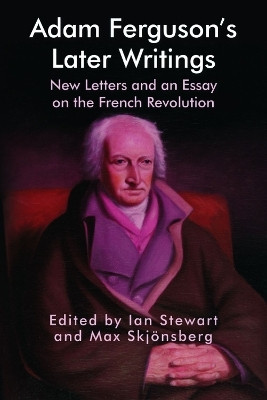Adam Ferguson's Later Writings(English, Hardcover, unknown)
Quick Overview
Product Price Comparison
This volume will publish for the first time thirty-six, until now, unpublished letters, as well as a new essay on the French Revolution, by the moral philosopher, historian and man-of-letters Adam Ferguson (1723-1816). A major figure in the Scottish Enlightenment, Ferguson has been one of the principal beneficiaries of the refocus of scholarly attention beyond the towering figures of David Hume (1711-1776) and Adam Smith (1723-1790) and toward their larger intellectual network. Penned during the last decades of his life, these letters were all addressed to his close friend Sir John Macpherson. They concern major topics of the day such as Enlightenment, Empire, and the French Revolution, as well as various illuminating details about Ferguson's final decades. They add considerably to our knowledge of the late Scottish Enlightenment.Located in a recent acquisition at the British Library, these previously unnoticed letters add considerably to our knowledge of Ferguson, his ideas - philosophical, historical, and political - and his intellectual milieu from 1784 to 1815. A substantial introductory essay presents the main findings, while critical apparatus will assist specialists and students alike in understanding this key Enlightenment thinker.


